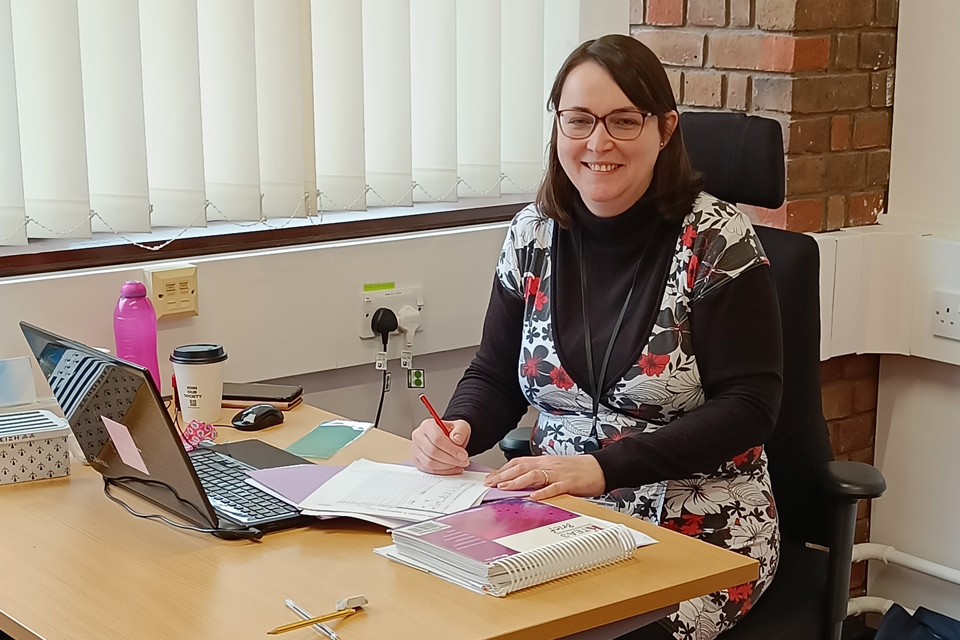When it comes to families considering a Potential Plus UK assessment for high learning potential, there are always questions that will pop up. We know that each child is an individual within their own set of personal circumstances, but there are certain Frequently Asked Questions that arise more than others. Bringing together the opinions of our assessors, advisers and office team, we have hosted this “Q&A session” about our face-to-face assessments.
We hope your questions will be answered, but for more information or guidance, please see our online pages at Assessments for Children or call the Potential Plus UK main office in Milton Keynes on 01908 646433. As part of booking an assessment, full details about our venue locations and other information about the day, such as safety restrictions during Covid, will be sent to you.
High Learning Potential Assessments
Q: The word ‘assessment’ sounds intimidating – is it very strict?
A: No, not at all! It is more like a series of different and fairly short activities, many of which will seem like a game. These tasks are varied; depending on the age of your child and type of assessment, some require verbal answers, some are activities on a laptop and a few are written down. We will be assessing your child’s level of ability in several areas, but generally this seems like a fun challenge to them as they get to stretch their brains!
Q: What should my child revise in advance?
A: Nothing! It is about what they know already and how they problem solve. We tell the children that we want to understand how they learn, so we need to see them working on some easy stuff as well as things of some difficulty, also seeing how they respond to topics they haven’t worked with or seen yet. This helps them to understand the range of what they will do and also helps their assessor to see how they approach unknown tasks.
Q: Do they do this on their own or with other children?
A: Only one child at a time undertakes the assessment.
Q: Will my son/daughter be left alone for hours or can I join them?
A: No child is left alone for the assessment; they work with a friendly, trained assessor one-to-one all the way through. To maximise the usefulness of the resulting report, it is important that a child works independently and can be free to say what they want, so other people are not allowed into the assessment room while tasks are ongoing. In addition, there are confidentiality clauses on the tests that mean the contents cannot be disclosed.
Q: What actually happens on the day of the assessment?
A: The details vary very slightly by location and assessor. Generally, though, once you arrive, you will be met by either office staff or the assessor themselves and invited to sign in (depending on venue) and gain an understanding of the layout of the rooms that will be used. Following this, you, as parents, remain in the waiting room and your child moves into the assessment room with the assessor in order to begin the tasks. There is a lunch break of 30–40 minutes, with other breaks if needed. Once all the tests are done, the assessor will arrange an online/phone call with you to briefly outline the findings of the day.
Q: Is my child allowed breaks?
A: Yes. Your child can have as many breaks as they need, (as agreed between your child and their assessor), during which they can re-join you in the waiting area.
Q: What do I bring?
A: Any sensory items that your child regularly uses to aid their concentration, as well as some drinks and snacks and something to keep you occupied while your child is taking part in the assessment. A toy/book for your child during break times.
Q: Have your assessors worked with children before?
A: Yes, all of them.
Q: What are the assessor’s qualifications?
A: Potential Plus UK assessors have a range of backgrounds and qualifications in areas such as child development, psychology or teaching. All of them have completed Certified Training as Potential Plus UK assessors (or are indicated to be Trainees and under the supervision of our Assessment Service Manager).
Q: Is it important to send in all the forms before the assessment?
A: Yes, please, because they allow the assessor to ask you any specific questions about your child’s range of needs or characteristics on (or before) the day of the assessment. It also allows the assessor to plan if they need to make any adjustments for these. Conflicting information from a School Questionnaire, for example, will not negatively prejudice the assessor, but will merely add to the background picture for your child and indicate what kind of support, if relevant, will be needed at school.
Q: Why do you ask for background information from both parents and schools?
A: The assessor administers the assessment tests fully independently of the background information provided by parents and/or school. A full set of results from the tests and interpretation of those results is then provided, along with recommendations based on the Assessor’s understanding of the child from their own interaction with them and the tests, as well as information provided from other sources such as parents, school, and documents provided by parents from healthcare professionals where relevant.
We request either background information from the school or school progress reports if possible as well as background information from the parents as this offers a holistic view of your child and their behaviour in the different settings of home and school. If your child does not display signs of, for example, perfectionism, on the day of assessment, but it is mentioned in both parental and school backgrounds, then this might be something that the Assessor might comment on. If your child appears radically different in parental background information to that provided by the school, then the assessor will examine the tests to see if the results reflect some hidden issue. It is not a problem if parents prefer not to involve their school.
Your Child’s Individual Needs
Q: Can my son/daughter bring their favourite toy, book, Rubik’s Cube or Lego?
A: Yes, of course! These can be looked at in breaks, placed onto the desk in the assessment area or hugged during the day. If an item is particularly distracting, the assessor may need to remove it during tests, however, in order to give your child their best chance, especially during tasks that are timed.
Q: My child is fidgety; will your assessor tell them off?
A: No, they won’t be told off and are allowed to move about. Although a child will be sitting at a table with the assessor for most of the day, these kinds of sensory and movement needs will be noted and, if they are significant, will be included in the finished report along with relevant recommendations about how to best understand and support them. We encourage you to bring any sensory items that your child regularly uses to aid their concentration.
Q: My child struggles to/doesn’t like to/refuses to write…will this be a problem?
A: There are ways around this; for example, a spelling test could be spelled out verbally. As most of the assessment is not in writing, this isn’t generally an issue. There is only one component where writing is essential, however, if the child really does refuse, the assessor can decide to just miss out that task and explain this in the resulting report.
Q: My child disengages at school because they find it boring; will an assessment be a waste of time and money because they won’t join in with the assessment either?
A: It is difficult to judge this in advance and you will know your own child, but this fear is rarely realised. We usually find that children enjoy the experience of having an engaged and interested adult working with them one-to-one to get the best out of them. The vast majority of children being assessed by us for high learning potential do engage in an assessment and find it stimulating rather than boring, even if they struggle to get motivated in class at school, for example. Potential Plus UK assessors are excellent at bringing out the best in children. As well as this, the kinds of challenges we set cover different areas and stretch in line with your child’s abilities, making it more likely that they will enjoy the exact kind of mental challenge that they have been missing.
Q: What if my child totally disengages or refuses to do something?
A: On rare occasions, a child may refuse to participate or to complete one or more tests. In cases such as this, or total disengagement, our reports can still be written (even with some tests missing) to include useful, personal scores and information. We would discuss the best way forward with you.
Q: Will my child be safe?
A: All of our assessors hold up-to-date DBS (Disclosure and Barring) checks and at each location the assessment room has a window into which it is possible to see at all times, should parents wish to reassure themselves that their child is happy and safe. We also comply with latest regulations relating to relevant areas, such as Covid-19, child safety and data protection.
Our Assessment Locations
Q: Where are the assessments held?
A: We have two locations for our face-to-face assessments; Milton Keynes and Gloucestershire.
Q: Could you describe what your assessment centres are like?
A: Of course!
Milton Keynes
Milton Keynes is the home of our Head Office and our assessments here take place on The Open University Campus, within the small Vaughan Harley Building. There is free, onsite parking outside of the building and there are hotels nearby for those families who prefer to travel down the evening before the assessment. The Campus has a café, a large walking area, including a sculpture trail, access to toilets and free Wi-Fi. In the assessment waiting room, there are two desks, two chairs and a large selection of reference books that parents can dip into whilst their child is undergoing the assessment. We may also have available some donated items such as books or puzzles, available in exchange for a small donation to boost our fundraising. Your child will be in the assessment room with the assessor, across the corridor from the waiting room, on the ground floor. At least one further member of Potential Plus UK staff will also be available.
Gloucestershire
Assessments take place in a community centre at the edge of Gloucester, 5 minutes from Junction 11a of the M5 motorway. There is parking outside of the centre or linked to the small parade of adjacent shops. These shops have a supermarket, bakery and café, which can be used during the lunch break if desired. The community centre has an open entrance/waiting room where parents are asked to wait; the room includes a table, Wi-Fi and toilets. There is often also low-priced tea and coffee available, however Covid-19 restrictions may apply. The child will spend the day in one of the rooms provided by the centre on the first floor; there is a lift available, if needed. Each room has a table, padded chair and a door with a glass window.
About the author: Gillie Ithell is a writer and editor for Potential Plus UK with a B.A. in Modern Languages & Communication and further qualifications in mental health. Having worked internationally as content manager of classic board games and ‘edutainment’ software, Gillie now writes to inspire others like herself; on a daily journey with High Learning Potential.






